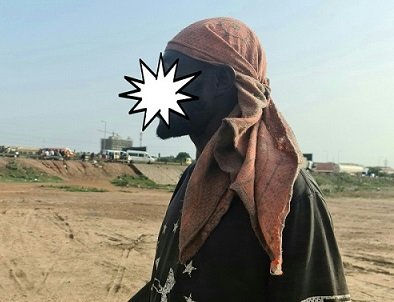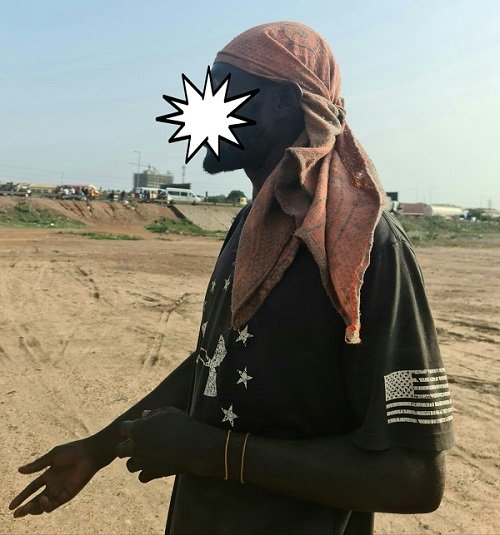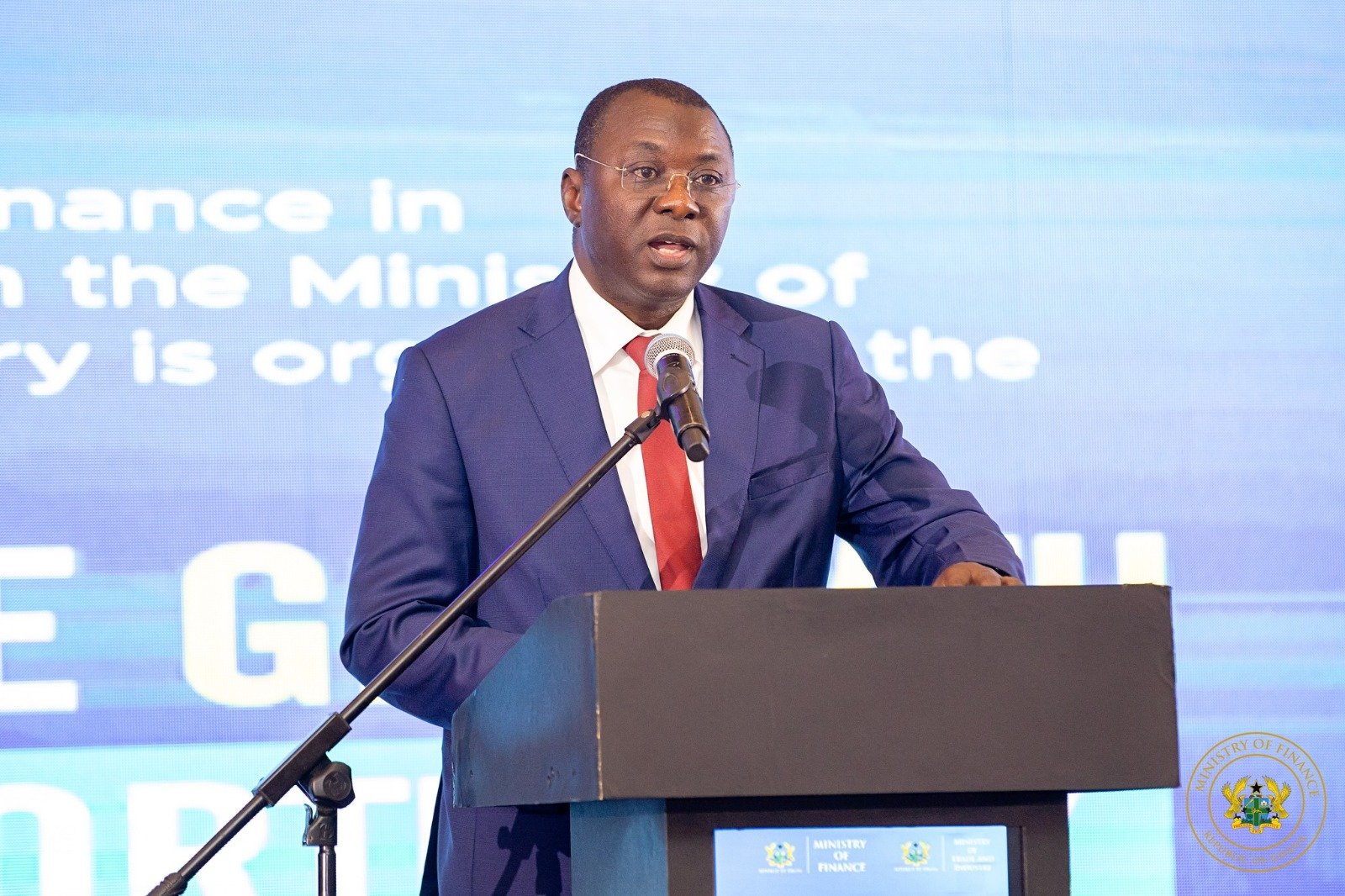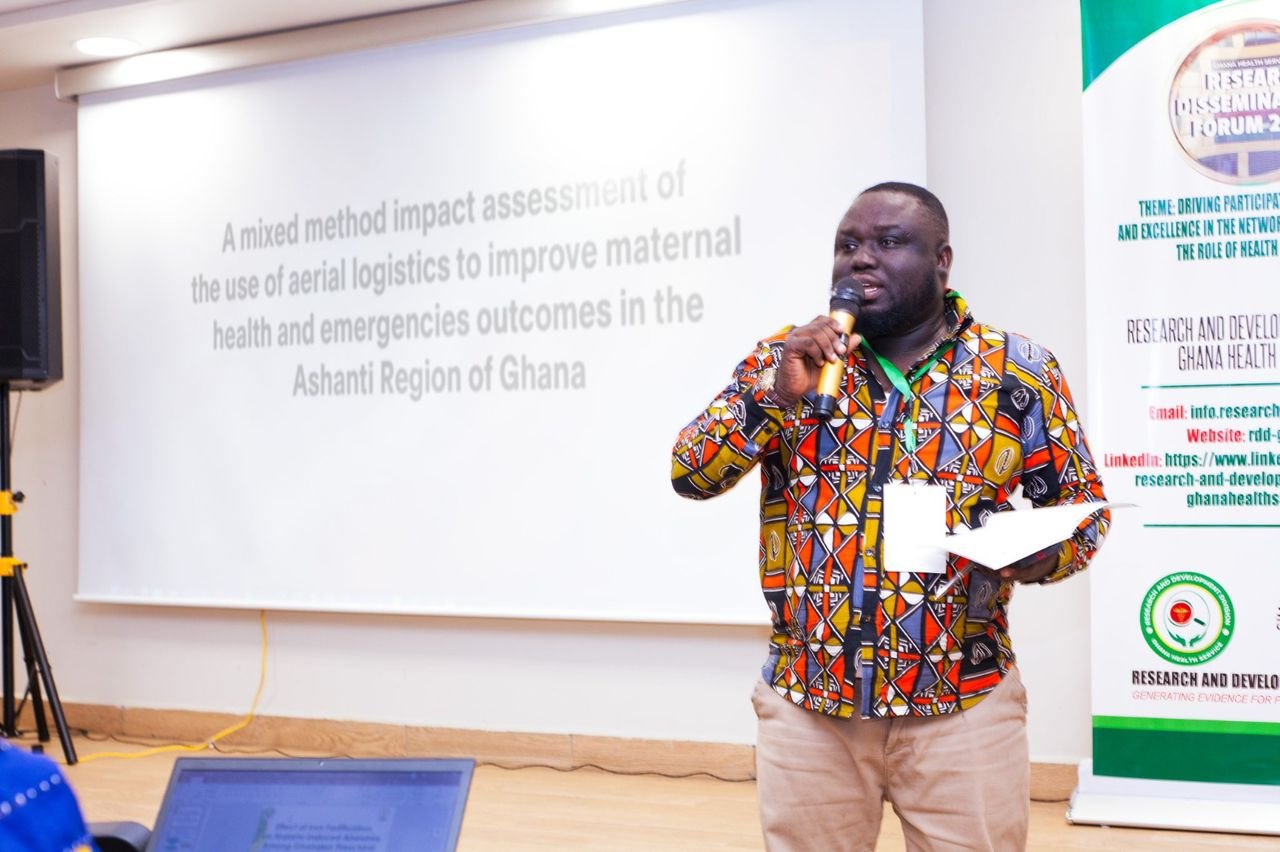Hot!
Battered, ruined by drugs …Story of 30-year-old mason

● Samuel Yao Kumah desires to get out of drug addiction
Many are of the view that once a person has passed the teenage years, there is no possibility of being influenced by their peers.
However, what happened to Samuel Yao Kumah might make many change their understanding of peer pressure.
In an interview with The Spectator last Thursday at Ashaiman in the Greater Accra Region, the 30-year-old Kumah disclosed that five years ago, he was a successful person frequenting some parts of a neighbouring country until he was introduced to drugs by some of his friends of the same age.
The mason recalled with tears that he once worked with a company which specialised in building warehouses and paid him handsomely.
He said the dramatic spiral began when some of his friends started begging him for money to buy drugs, which he did out of kindness.
Yao Kumah said that with time, as he hanged around with them, they convinced him to also have a sniff or two, and just so that he would not offend them, he agreed.
He said unfortunately, with time, he observed that he was to develop a strong ‘love’ for the drug and patronised it, especially when he was alone.

Sadly and unimaginably, with time, Yao Kumah became addicted and started investing so much in drugs.
He explained that this was because anytime he failed to take it, he experienced a serious discomfort popularly known as “turkey,” and so he had to try as much as possible to have access to it before he could feel normal.
“It affected my output at work, and I also lost interest in everything except drugs,” he said.
According to Yao Kumah, gradually he started losing so much, including his job, wife, savings and even some properties.
He said he was forever grateful to one of his brothers, who advised him to buy land and build a house when he had the means.
“But for him, I would have been homeless by now,” he recalled.
He said some families and friends had tried to caution him, but their pieces of advice came at a time when he was too neck-deep in it to turn back.
Yao Kumah said he regretted not staying away from such friends of bad influence and felt bad each time he remembered how he allowed himself to be destroyed so easily.
He currently tries to patch roads with potholes to earn some income or beg from road users to survive and take care of his three children, who live with his mother in the Volta Region.
Yao Kumah said his strongest desire was to stop doing drugs, get a decent job to take care of his children and restore his dignity.
He called on public-spirited people to help him to go to a rehabilitation centre to get professional help to get off drugs.
The mason said he had tried on his own to quit drugs, but the situation had gone beyond the use of willpower to get out of it.
He advised the youth to avoid bad company because it was true that evil company corrupted good manners, so that they would not end up like him.
“On this note, let me take the opportunity to advise families and friends not to abandon their loved ones when they become drug addicts but rather support them in any way they can to bring them out of the mess they have found themselves in.
“Indeed, I feel bad whenever I look back at how I had fallen, but I felt worse when people passed by and insulted or humiliated me,” Yao Kumah said.
He said he was ready to avail himself to talk to people to stay away from bad company and drugs, using his life as an example.
From Dzifa Tetteh Tay, Ashaiman
Hot!
GEXIM to host “SME GO” programme stakeholder sensitisation and fair on September 18

The Ghana Export – Import Bank (GEXIM) in collaboration with the Ministry of Finance, Ministry of Trade and Industry, Ghana Enterprises Agency and Development Bank of Ghana will be hosting the final phase of the stakeholder sensitisation exercise on the Small and Medium-sized Enterprises Growth and Opportunity (SME GO) Programme at the Bank’s headquarters located at the Africa Trade House, in Accra.
The stakeholder sensitisation event is scheduled to take place on Wednesday SSeptember18, 2024 at 10 am and will give attendees a deeper insight into the SME GO Programme with a focus on the dynamics of the programme, eligibility criteria application process and how the initiative seeks to assist Ghanaian SMEs to scale up and compete favorably in the international marketplace.
The confirmed speakers and dignitaries for the event will highlight how Ghanaian SMEs can leverage on the SME GO Programme to build the capacities and make them sustainable.
They include Hon. Abena Osei-Asare, Minister of State at the Ministry of Finance, Hon. K. T. Hammond, Minister of Trade and Industry, Hon. Nii Kwartei Titus Glover, Greater Accra Regional Minister as well as the Chief Executive Officers of the Ghana Enterprises Agency and Development Bank of Ghana.
Alongside the stakeholder sensitisation event, GEXIM will be hosting a special edition of its popular SME Fair dubbed “SME GO Mart” at the forecourt of the Africa Trade House, from 8am to 8pm.
The theme for the “SME GO Mart” is “Celebrating Ghanaian SMEs” and it will provide a platform for Ghanaian entrepreneurs to showcase various top-quality Made-In-Ghana products.
Over hundred Ghanaian entrepreneurs with unique products have been confirmed to participate in the fair.
They will be exhibiting several unique and authentic products at unbeatable prices including food and ingredients, beverages, skin and beauty care products, textiles, apparel, garments, leather footwear, slippers, and many others.
In July 2024, the Government of Ghana through the Ministry of Finance launched the SME GO Programme, a ground breaking initiative which sought to provide Ghanaian SMEs with the needed funds, requisite technology and knowledge as well as other relevant resources and tools to aid their growth to become international giants.
Hot!
Zipline, GHS reduce maternal mortality in Ashanti Region by 56.4% – Study

A recent impact assessment study on aerial logistics to improve maternal health and emergencies has revealed a remarkable reduction in maternal mortality by 56.4% in Ghana’s Ashanti Region, thanks to the collaborative efforts of Zipline and the Ghana Health Service (GHS).
This was revealed at the National Ghana Health Service Research Conference organized by the Ghana Health Service in partnership with Zipline. The study, which focused on the impact of aerial logistics in healthcare, also noted a 19.9% increase in antenatal visits and a 25% rise in in-facility births, signaling a significant boost in maternal health outcomes.

The success according to the study is attributed to the on-demand availability of blood and essential medical supplies provided by Zipline’s innovative drone delivery system. This consistent access to critical resources has increased patient confidence in the healthcare system, encouraging more mothers to seek necessary care throughout their pregnancies.
Speaking on the highlight of the study, the Research Officer at Ashanti Regional Health Directorate stated, “the significant decrease in maternal mortality we’ve seen is a clear indication of the vital role that reliable access to medical supplies plays in healthcare. The ability to deliver blood and essential medicines exactly when they’re needed has transformed how mothers in the Ashanti Region perceive and engage with the healthcare system.”
“It’s an achievement that speaks to the importance of introducing technology in healthcare delivery. Mothers now feel more confident in seeking care, knowing that they will receive the support they need throughout their pregnancies,”he stated.
The study examined data from 191 health facilities, including hospitals, health centers, and Community-based Health and Planning Services (CHPS) Compounds. Among these, 99 facilities were served by Zipline’s aerial logistics, while 91 were not. The research employed adjusted rates for various key indicators, such as antenatal consultations, emergency visits, referrals, live births, hysterectomies, maternal deaths, and neonatal deaths, as the main dependent variables.
The qualitative aspect of the study aimed to describe and analyze the changes in satisfaction levels among healthcare providers and patients, perceived quality of care in maternal health and emergencies, and experiences related to the use of aerial logistics. In-depth interviews were conducted with 22 patients and 23 healthcare providers at the participating facilities.
Globally, maternal mortality remains a critical public health challenge, with stark disparities between high-income and low-to-middle-income countries (LMICs).
According to the World Health Organization (WHO), the majority of maternal deaths occur in LMICs, often due to preventable causes. In Ghana, particularly in the Ashanti Region, the problem is critical, reflecting the broader challenges faced across the African continent. Beyond this, socio-economic, geographic, and infrastructural factors intensify the risks associated with pregnancy and childbirth, highlighting the urgent need for innovative solutions to improve maternal health outcomes.
As maternal mortality continues to pose a challenge in low-to-middle-income countries, the success seen in Ghana’s Ashanti Region offers a promising model for other regions and nations striving to improve maternal health outcomes through innovative solutions.
Zipline is poised to continue leading the way in revolutionizing healthcare delivery, ensuring that every mother has access to the life-saving resources, no matter where she lives.







